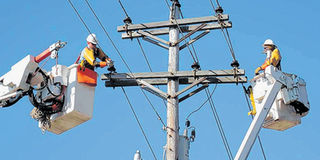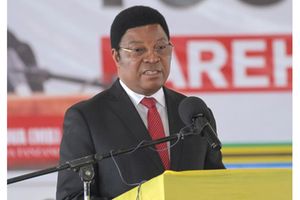WB keen on Africa power profitability, affordability

Power fixing in South Africa. The World Bank shows how Africa’s electricity providers can be profitable and still make electricity affordable.PHOTO | FILE
What you need to know:
- “A central, but under-reported issue on the movement to reach universal access is the financial health of electricity utilities,” said Lucio Monari, Director of Energy and Extractive Global Practice at the World Bank. “Less than half of the utilities cover operating expenditures, while several countries lose in excess of $0.25 per kWh sold.
Cape Town. The World Bank will present its recent study which provides a sobering assessment of the financial health of electricity utilities in sub-Saharan Africa, and suggests how they can be profitable while extending affordable services for the poor.
“A central, but under-reported issue on the movement to reach universal access is the financial health of electricity utilities,” said Lucio Monari, Director of Energy and Extractive Global Practice at the World Bank. “Less than half of the utilities cover operating expenditures, while several countries lose in excess of $0.25 per kWh sold.
In this context, it will be difficult for utilities to maintain existing assets, let alone facilitate the expansion needed to reach universal access goals,” he added.
Mr Monari will address the Utility CEO Forum at the upcoming African Utility Week in Cape Town from May 16-18 and present the results of a recent World Bank study: “Making Power Affordable for Africa and Viable for Its Utilities”.
The study looked at utility financial statements and power tariffs in more than 40 countries, and spending data in household surveys for 22 countries.
“It remains surprisingly difficult to get basic bread-and-butter data such as tariff schedules, operational performance data and financial statements. We focused heavily on raw data collection directly from sub-Saharan utilities,” Mr Monari explained.
Increasing potential of mini and off-grid
He says: “To make the power sector more viable, sector governance and utility management need to be strengthened. The regulatory framework should be clear and predictable, providing incentives for the utility to improve their performance. Privatization and unbundling can work where the conditions are right. Unbundling does have transaction costs that need to be considered and weighed carefully against the benefits of creating new institutions.”
The World Bank study focused primarily on grid electricity, says Mr Monari, adding that while connecting to the grid is a solution for urban Africans and many people living in rural areas, rural electrification cannot rely solely or even largely on grid extension. (AFP)




